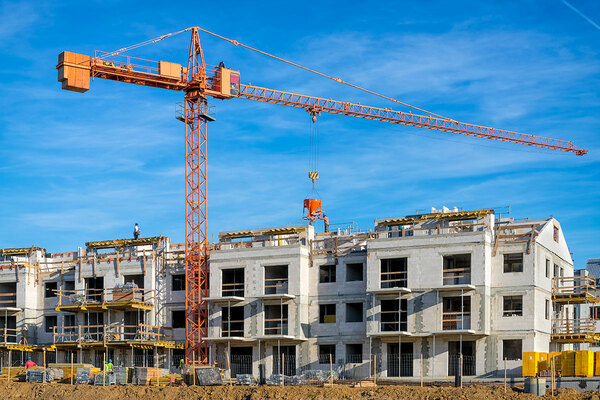You are viewing 1 of your 1 free articles
Social housing can help stimulate the economy from its darkest days
Social housing should be a key part of the economic recovery after coronavirus, writes Neil Toner
The coronavirus pandemic is clearly a health crisis. But it is also a financial one – with predictions that UK output could shrink by 35% in a single quarter.
As the nation emerges from lockdown, an economic battle, the like of which we have never seen before, will need to be fought if we are to avoid a prolonged depression worse than that seen in the 1930s. The social housing sector should be on the frontline when it comes to that battle.
There are a number of different ways an economy can be re-stimulated. Investment in infrastructure generally, and housing in particular, is proven to be one of the best. This is because for every pound that a developer spends on building a home – whether that pound comes from its own resources, grant or debt – the economy will grow by more than a pound.
That’s called the multiplier effect and it happens because the money gets spent more than once. A housing association will pay a contractor, the contractor then buys and pays for windows and the window manufacturer will buy and pay for materials.
Everyone in the chain will be paying their employees. Those employees will then have money in their pockets and will start consumer spending again. If the homes are being built for sale, the purchasers will be engaging surveyors and other professionals. They will likely be buying new furniture. That again boosts consumer spending – particularly in the badly hit retail sector.
The social housing sector is, relatively speaking, in good shape to join the battle. Most indications suggest that the sector’s financial position was strong at the end of 2019. This is clearly demonstrated by the results of the Quarterly Survey published by the Regulator of Social Housing in February. It covered the quarter up to the end of December 2019 and showed:
- £22.5bn of undrawn facilities in place
- Cash balances of £5.1bn
That’s a positive cash position that most economic players can only dream of. It all points to a sizeable war chest. This should enable housing associations to fill the gap caused by any reticence from private developers to commit to large projects in the next 12 months. A pull-back by private developers is not a crisis – it’s an opportunity to provide more social housing.
And, in the circumstances, where the whole country is going to have to pull together to get through this, there is likely to be considerable pressure to significantly step up.
The sector has the potential to secure more funds. Prior to 2018 traditional secured loans, provided by a relatively small group of banking institutions, were the mainstay when it came to private finance in the sector. But the sector has come of age in the eyes of international finance.
While returns have been far from spectacular, they’ve been consistent. ‘Finance’ has cottoned on to the fact that the nation’s embarrassingly large shortage of affordable housing makes it a safe bet that demand will outstrip supply for the foreseeable future.
That will continue to be the case notwithstanding the pandemic and its aftershocks. Although less regulated than it was, the regulator still casts a reassuring eye. Money will be seeking ‘solid’ investments more than ever now. Social housing can be that safe harbour.
In 2018 and 2019 new bank entrants included National Australia Bank, Wells Fargo and Sumitomo Mitsui Banking Corporation. But it’s not just the volume of cash that is interesting.
The scale of investment from financial institutions into fledgling for-profit housing associations means that they are now becoming a reality at scale. A number of pension funds are exploring lease-based investments again in the guise of operating leases, income strips and sale and leasebacks.
The sector is still wary following historic problems with such transactions, but some argue that those problems were the result of poorly thought-through deals – rather than an inherent issue with the concept.
Given the rapid nature of the coronavirus-induced economic contraction, speed will be an essential element of the fight back. That is often the achilles heel of infrastructure programmes when it comes to economic stimulus. If a decision to build a railway is taken now, the likelihood is that the trains will not be running until the after the recession has been and gone.
But, here again, housing associations are well placed – with highly skilled development teams ready to deliver quickly. In addition to their own pipelines, they should be considering joint ventures and other working arrangements with other players that may have the desire and ability to invest in housing stock but not the immediate technical capacity at scale – such as local authorities.
Social housing will not be without its challenges in the new era, but it is in a good position to help stimulate the economy from its darkest days. This is an opportunity, but there is likely to be an expectation, too.
Neil Toner, partner, Devonshires











